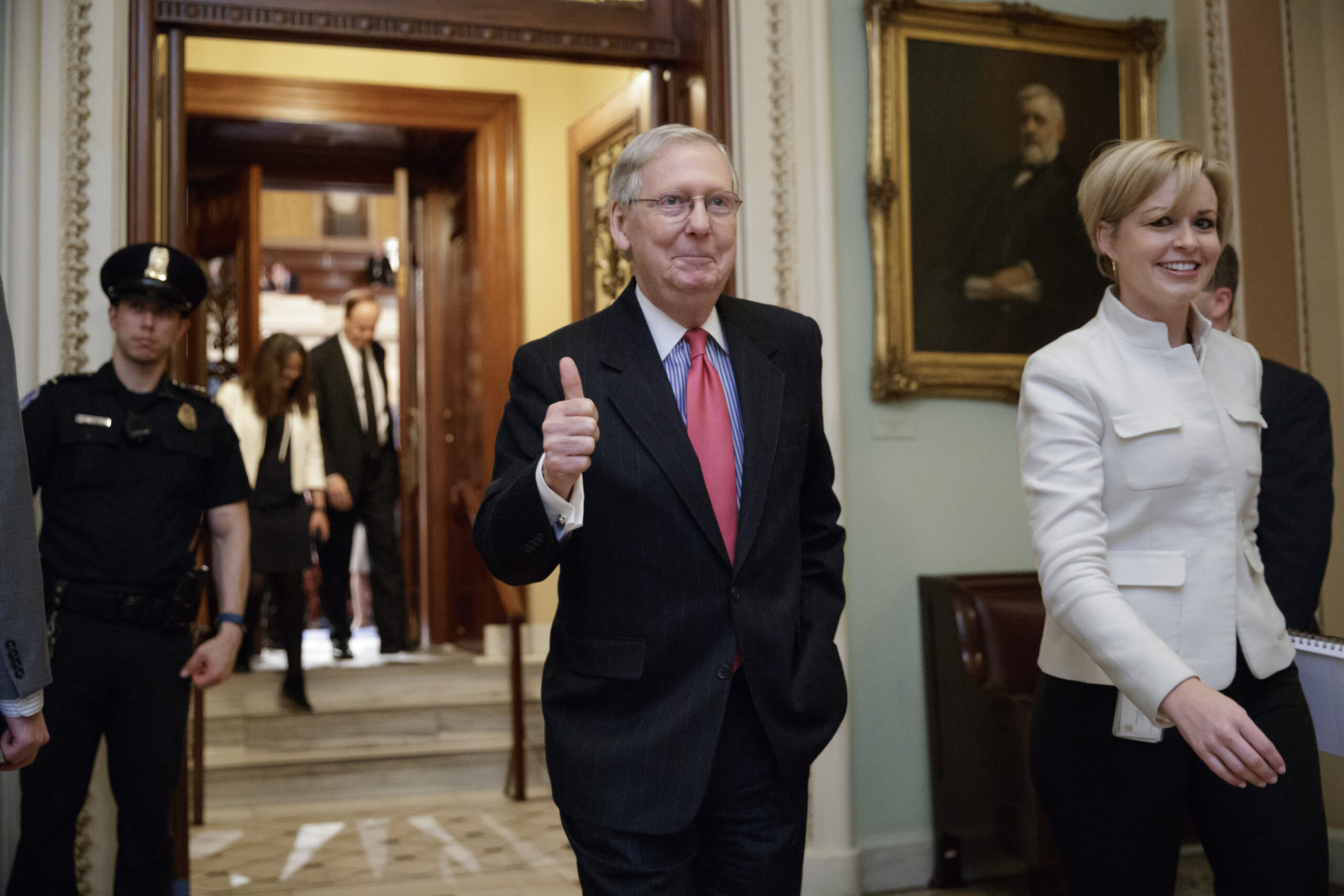Now that President Donald Trump appears to have embraced the idea of governing as America’s first president with less than half of the public supporting him, his congressional counterparts are trying their best to appease the GOP’s conservative base by continuing their long slog to repeal and replace Obamacare.
Mitch McConnell, who leads the Republicans in the Senate, appears to have foreseen the difficulties that the party would face in passing a health care bill. In 2014, before the GOP had taken a majority in the Senate, he seemed to prefer an approach that would eliminate some of the more unpopular portions of the Affordable Care Act such as its tax requirement to have some form of health insurance.
McConnell’s former House Republican counterpart, retired Rep. John Boehner of Ohio, flat out stated in February that a complete repeal of Obamacare was “not going to happen” because “Republicans never, ever agree on health care.”
In March, current Speaker of the House Paul Ryan seemed to agree with that analysis, saying at a March 24 press conference after he had to withdraw the GOP’s first attempt at a health care bill, “We’re going to be living with Obamacare for the foreseeable future.”
While the GOP is having trouble agreeing on what to replace Obamacare with and the plan that ultimately did pass the House is becoming increasingly unpopular (just 17 percent of respondents supported it in a poll released Thursday by Quinnipiac University), leadership appears to have come to the conclusion that in the midterm elections that historically have been dominated by more conservative voters, taking a more discreet approach to overturning former president Barack Obama’s signature achievement will likely lead many hardcore Republicans to stay home, thus leading to GOP electoral losses.
That’s why McConnell is still trying to push forward, albeit under a time limit, to ensure that congressional Republicans don’t allow a doomed health care effort to prevent them from passing other major pieces of legislation, such as a large tax cut. The Senate GOP is also conducting its internal negotiations in secret, planning to bring forth whatever bill that emerges direct to the Senate floor rather than to a committee.
The overall objective appears to be to produce a bill that can pass or to simply give up and move on to something else, perhaps even the more circumspect measures that McConnell had talked up earlier. That’s something Sen. Claire McCaskill pointed out during a hearing on a different measure Thursday.
"Will there be a hearing on the health care proposal?" Senator @clairecmc asked today in the Finance Cmte. You should watch: #Trumpcare pic.twitter.com/rmKB0rGnTM
— Senate Democrats (@SenateDems) June 9, 2017
The Republican effort is also hampered by the fact that under reconciliation rules, the Senate GOP’s bill must save at least $119 billion from the federal budget, the savings that were achieved under the House-passed American Health Care Act.
That objective presents a significant challenge for the Senate GOP since the bill’s eventual end to Obamacare’s Medicaid expansion has become one of its most unpopular provisions. According to the Congressional Budget Office, the provision would cause up to 14 million people to lose health coverage once it goes into full effect.
The only way the Senate Republicans could keep the expansion while saving the same amount of money would be to refrain from repealing some of the tax increases that were also in the original Affordable Care Act. Signing off on those tax hikes would be strongly disapproved of by the anti-tax activists and donors who dominate the right side of the aisle in Washington. The House bill also has a provision that effectively defunds family and abortion services provider Planned Parenthood which may also run afoul of budget reconciliation rules.
Whatever ends up happening, McConnell has vowed that he will bring things to a conclusion before the Senate goes into its July 4 recess. That means the GOP is going to have to get something to the Congressional Budget Office for an official scoring as soon as possible. The Senate is also up against a hard June 21 deadline for insurance companies to decide if they are going to participate next year in the health care exchange markets that were created under Obamacare. Those decisions will almost certainly key off of what the GOP intends to do on health care. And as of now, there is no indication what that is.
As McConnell’s self-imposed deadline looms, the early declarations from Republican senators that their chamber’s bill would be a completely different thing are starting to ring false. On Monday, White House Legislative Affairs Director Marc Short told reporters that “at the end of the day, you will probably see a lot of similarities” to the House version of the bill.


